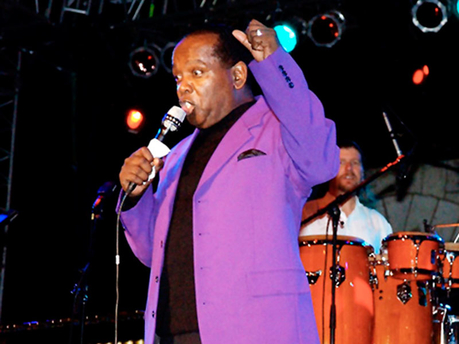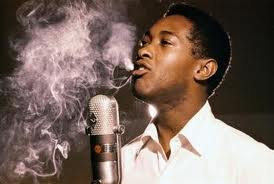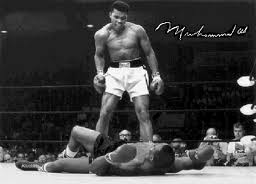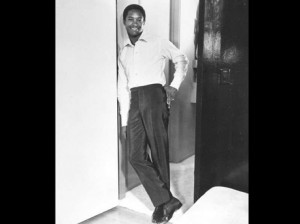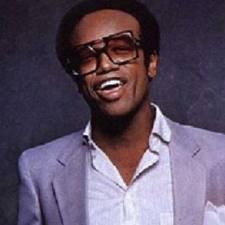By Roy Black—-
The high point of male vocalising in popular music was epitomised by the mellow-toned, crystalline vocal delivery of Sam Cooke. Musicologists worldwide have given Cooke the nod, as far as singing talent was concerned, placing him ahead of others like Nat King Cole, Roy Hamilton, Ronnie Dyson and Luther Vandross.
The well-reputed Atlantic Records executive, Jerry Wexler, whose organisation steered the careers of a plethora of 1960s stars, said of Cooke, “Sam was the best singer who ever lived, no contest. When I listen to him, I still can’t believe the things that he did. He has control. He could play with his voice like an instrument. His melisma, which was his personal brand – I mean, nobody else could do it. Everything about him was perfection.”
Smokey Robinson, chief executive at Motown Records, was equally lavishing in his comments: “Sam Cooke had one of the most unique and original singing styles I ever heard. He was my favourite.”
Rod Stewart told Rolling Stone magazine in June 8, 1972 that “Sam Cooke was the only one that really influenced me. Over a period of two years, that’s all I listened to.”
Boxing legend Muhammad Ali, after his fight with Sonny Liston at Miami Beach, Florida on February 25, 1964, said, “Sam Cooke is the world’s greatest – the greatest singer in the world,” while the queen of soul, Aretha Franklin, branded him as “a unique and extraordinary artist who strongly influenced many male vocalists of the ’50s, ’60s and ’70s”.
Cooke’s birth on January 22, 1931 would have made him 84 years old this past Thursday, and accordingly, makes this retrospective most timely.
His birthplace was Clarksdale, Mississippi, USA, but he grew up in Chicago, where his father, Reverend Charles Cook, had moved with his wife, Annie Mae, and eight children, in search of a better life. Brought up under strict religious regimentation, Sam became exposed to the hand-clapping, spirit-filled church services of his travelling preacher father, where at the age of six, he was encouraged by his father to sing about the faith, and joined his siblings in the family gospel group – The Singing Children.
In 1946, at age 15, Sam was recruited while attending the Wendell Phillips High School to be the lead singer of the famous teenage gospel group, The Highway QC’s. While with the group, Cooke received guidance from the more experienced gospel group – The Soul Stirrers, to which he became attached by age 19, becoming their lead vocalist. It was while with the Soul Stirrers that Cooke began his writing and recording career with Speciality Records, putting out gospel classics asTouch the hem of his Garment, Be with me Jesus and Nearer to Thee.
Secular transition
By 1956, Cooke was being encouraged by record scouts to move into the more lucrative area of secular recordings. Not wanting to offend his gospel fans, he was hesitant at first, and recorded some early pop material under the name Dale Cook as a form of disguise, while continuing with The Soul Stirrers, and attracting legions of female fans to his gospel shows. He was thus enjoying the best of both worlds, packing smoky nightclubs as much as church pews. His beautiful voice and charismatic character portrayed him as some sort of gospel sex symbol, but by then, Cooke was already lured into his secular debut, titledLoveable, for Speciality Records. When his contract was bought by Keen Records in 1957, he immediately took the world by storm with the majestic self-penned, double million seller, You Send Me. Ladies cried and the world stood still as Cooke serenaded:
“Darling, you send me,
you thrill me
Honest you do (x3)
At first I thought it was infatuation,
but ooh, it lasted so long.
Now I find myself wanting to marry you and take you home.”
The recording made Cooke a star almost overnight, and he followed up as a regular on the charts between 1957 and 1960 with hits likeWonderful World, Only Sixteen, Win Your Love, Sentimental Reasons, Desire Me, and I’ll Come Running Back, for Keen Records.
He left Keen for the more established RCA label in 1960, where he acquired the production services of Hugo Peretti and Luigi Creatore. With Cooke now recording more of his own material, the hits continued to flow with Chain Gang (1960), Twisting the Night Away, Bring it on Home (1962), Another Saturday Night, Send Me Some Loving(1963) and Cupid (1961) in which he appealed to the Roman god of love to:
“Draw back your bow
And let your arrow go
straight to my lover’s heart for me.
Cupid please hear my cry
and let your arrow fly
straight to my lover’s heart for me.”
His 1962 hit Bring it on Home, with Lou Rawls on backing vocals, evokes memories of a 1958 motor vehicle crash in which both men were involved. Cooke was slightly injured, while Rawls never recovered for about a year.
Independent endeavours
Meanwhile, in the early 1960s as well, Cooke became more business-minded and founded his own independent record label, his own management firm, and produced several hits for artists like Bobby Womack, The Soul Stirrers and Johnny Taylor. Emerging as a crossover superstar, Cooke ventured onto the Las Vegas casino stages and white night clubs, but by 1964, returned to his social roots, using his stature as a superstar performer to break down color lines between blacks and whites. His lyrics became more socially conscious and was perhaps best reflected in his 1965 posthumous smash, A Change is Gonna Come, in which he lamented:
“Its been a long, a long time coming,
but I know a change gonna come, oh yes it will.”
Cooke’s life was one beset with tragedies: A motor vehicle accident; losing his first wife in a motor vehicle accident, and the drowning of his youngest son in the family swimming pool. Then, at the height of his career, he was shot dead by a Los Angeles female hotel manager, who claimed she acted in self-defence. Though ruled justifiable homicide, many thought Cooke was murdered by unscrupulous forces who thought he was getting too powerful as a black man.






